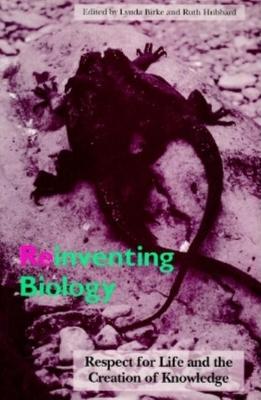Race, Gender, & Science
1 total work
oRuth Hubbard and Lynda Birke have asked an important question: how would the practices of biology change if organisms were considered subjects with agency? They have gathered an array of excellent scholars and a broad spectrum of perspectives...this is a fresh question and one very much on the minds of many people.O NLonda Schiebinger What would the study of life be like if omanO were not given a special place? The contributors to Reinventing Biology begin to answer that question, exploring what biology would blook like if scientists gave more forethought and concern to the organisms with which they work. These essays address a broad spectrum of concerns: How are organisms raised, housed, and maintained, and what concern is given to using the minimum number needed to address the question at hand? What does it mean to raise animals or plants specifically as experimental resources? What guides the decisions about which animals are routinely bred for experimental purposesNdogs and cats are not, unlike guinea pigs, rats, and mice. What about experiments with owildO animals and the impact of such experimentation on natural populations?
The questions raised here point to contradictions in present-day biological research: debates about the lines between nature and culture, subject and object, organisms and machinesNespecially as machines become more sophisticated. Reinventing Biology also addresses the status and social responsibility of scientists, as well as the social construction of science and onature.O The contributors are Arnold Arluke, Lynda Birke, Anne Fausto-Sterling, Ruth Hubbard, Emily Martin, Judith C. Masters, Donna Mergler, Karen Messing, Stuart A. Newman, Lesley J. Rogers, Hilary Rose, Boria Sax, Vandana Shiva, Marianne van den Wijngaard and Betty J. Wall.
The questions raised here point to contradictions in present-day biological research: debates about the lines between nature and culture, subject and object, organisms and machinesNespecially as machines become more sophisticated. Reinventing Biology also addresses the status and social responsibility of scientists, as well as the social construction of science and onature.O The contributors are Arnold Arluke, Lynda Birke, Anne Fausto-Sterling, Ruth Hubbard, Emily Martin, Judith C. Masters, Donna Mergler, Karen Messing, Stuart A. Newman, Lesley J. Rogers, Hilary Rose, Boria Sax, Vandana Shiva, Marianne van den Wijngaard and Betty J. Wall.
